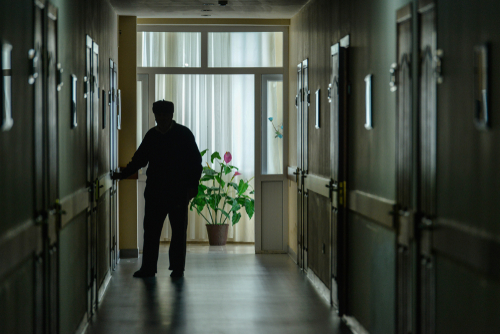Family Involvement In Senior Care: Building A Supportive Network
December 7, 2025 0 CommentAs loved ones age, their needs often evolve, physically, emotionally, and socially. While professional caregivers and senior living communities play an essential role, family involvement remains one of the strongest pillars of quality senior care. When families stay engaged, seniors feel supported, valued, and connected, leading to better health outcomes and a…
Read MoreHow Assisted Living Promotes Independence And Autonomy For Seniors
November 28, 2025 0 CommentOne of the most common misconceptions about assisted living is that seniors lose independence once they move into a care community. In reality, the opposite is true. Assisted living communities are specifically designed to enhance independence, offering the right balance between support and autonomy. With personalized care, safe environments, and opportunities for…
Read MoreThe Impact Of Physical Environment On Senior Well-being In Assisted Living
September 28, 2025 0 CommentWhen families consider assisted living for their loved ones, the focus often centers on medical care, safety, and social activities. While these are essential, one factor that significantly shapes seniors’ quality of life is often overlooked: the physical environment. From natural light and room design to outdoor spaces and accessibility, the environment…
Read MorePreparing For The Future: Estate Planning And Assisted Living
September 14, 2025 0 CommentAs seniors and their families begin to explore options for long-term care, two important topics often rise to the forefront: assisted living and estate planning. While assisted living provides support for daily needs and enhances quality of life, estate planning ensures that a senior’s financial, medical, and personal wishes are protected. Together,…
Read MoreTechnology Tools For Keeping In Touch With Loved Ones In Senior Care
August 28, 2025 0 CommentStaying connected with loved ones is vital for seniors, especially those living in assisted living facilities, nursing homes, or other senior care communities. Strong family ties not only provide emotional support but also contribute to mental health, happiness, and overall well-being. In today’s digital age, technology tools have made communication easier than…
Read MoreHow To Address Common Concerns About Moving To Assisted Living
August 21, 2025 0 CommentMoving to an assisted living community is a major life transition for seniors and their families. While it offers numerous benefits, including professional care, social engagement, and peace of mind, many seniors experience hesitation and anxiety about the move. Concerns often stem from misconceptions, emotional attachments, or fear of the unknown. By…
Read MoreEmergency Preparedness In Senior Living Communities: Safeguarding Seniors With Confidence
July 28, 2025 0 CommentEmergencies can strike at any moment, whether it’s a natural disaster, a medical crisis, or a power outage. For senior living communities, where residents may have physical, cognitive, or medical limitations, emergency preparedness isn’t just a protocol; it’s a critical necessity. Ensuring the safety, comfort, and continuity of care for older adults…
Read MoreSenior Safety: Tips For Preventing Falls And Accidents
June 14, 2025 0 CommentAs people age, maintaining safety becomes a vital part of everyday life—especially when it comes to preventing falls and accidents. According to the Centers for Disease Control and Prevention (CDC), falls are the leading cause of injury among adults aged 65 and older. While falls can lead to serious injuries such as…
Read MoreEncouraging Hobbies And Interests In Senior Living Communities
May 14, 2025 0 CommentAs individuals transition into senior living communities, one of the greatest concerns for both residents and their families is maintaining a sense of purpose, joy, and individuality. While daily support, safety, and medical care are essential, encouraging hobbies and personal interests is equally vital to residents’ overall well-being. Engaging in meaningful activities…
Read MoreHow Assisted Living Promotes Independence And Autonomy For Seniors
March 5, 2025 0 CommentAging is a natural part of life, and while it often brings physical and cognitive changes, it doesn’t mean seniors have to sacrifice their independence. Assisted living facilities are designed to provide the support seniors need while encouraging them to maintain their autonomy, make personal choices, and lead fulfilling lives. Many people…
Read More- 1
- 2
- 3
- …
- 5
- Next Page »








